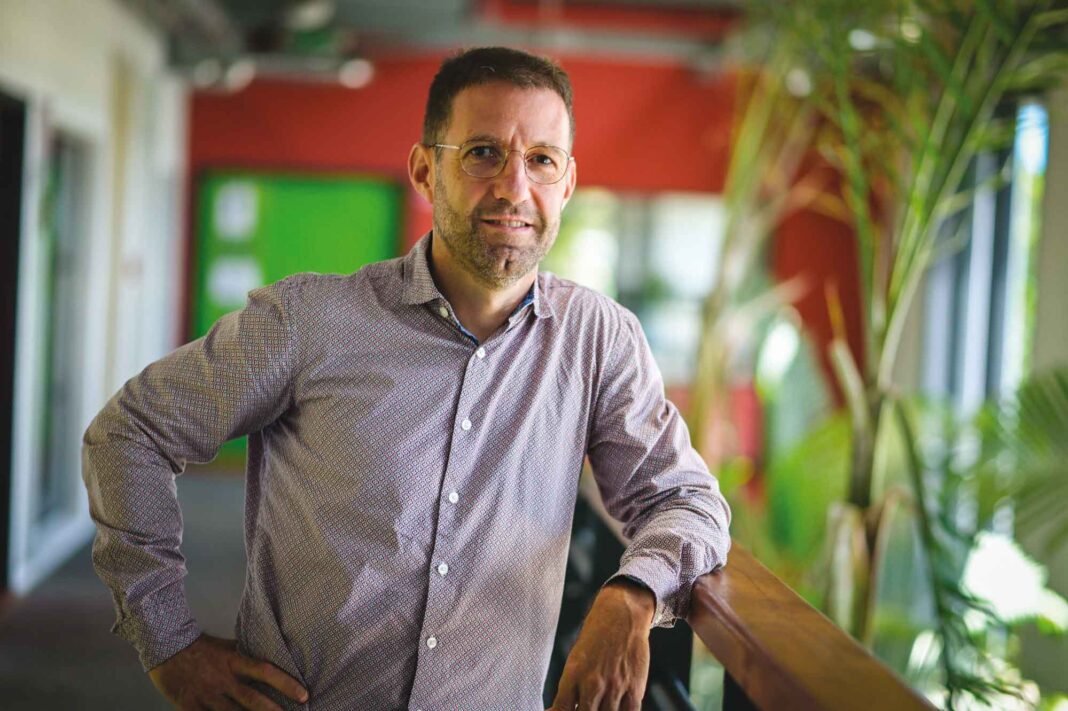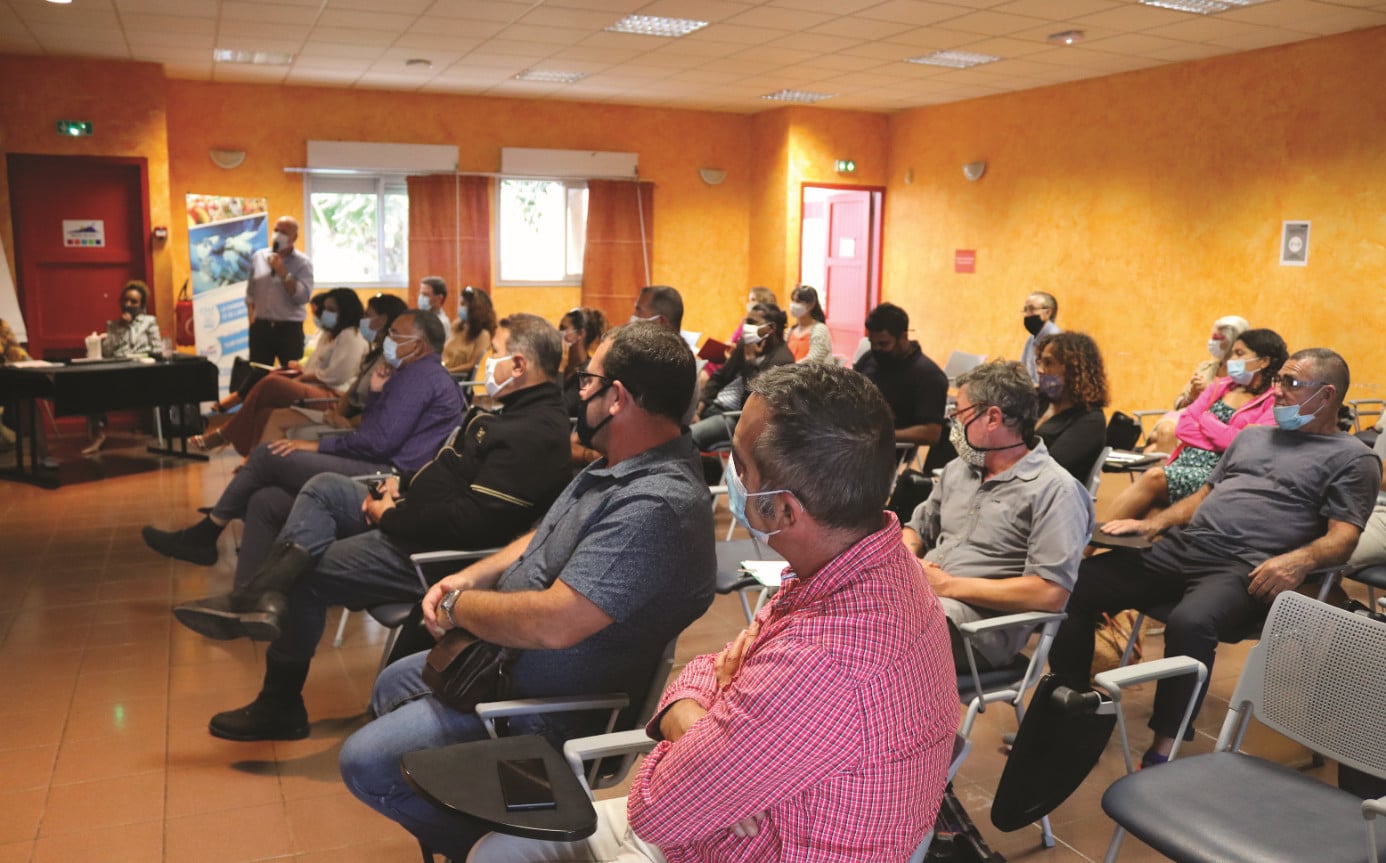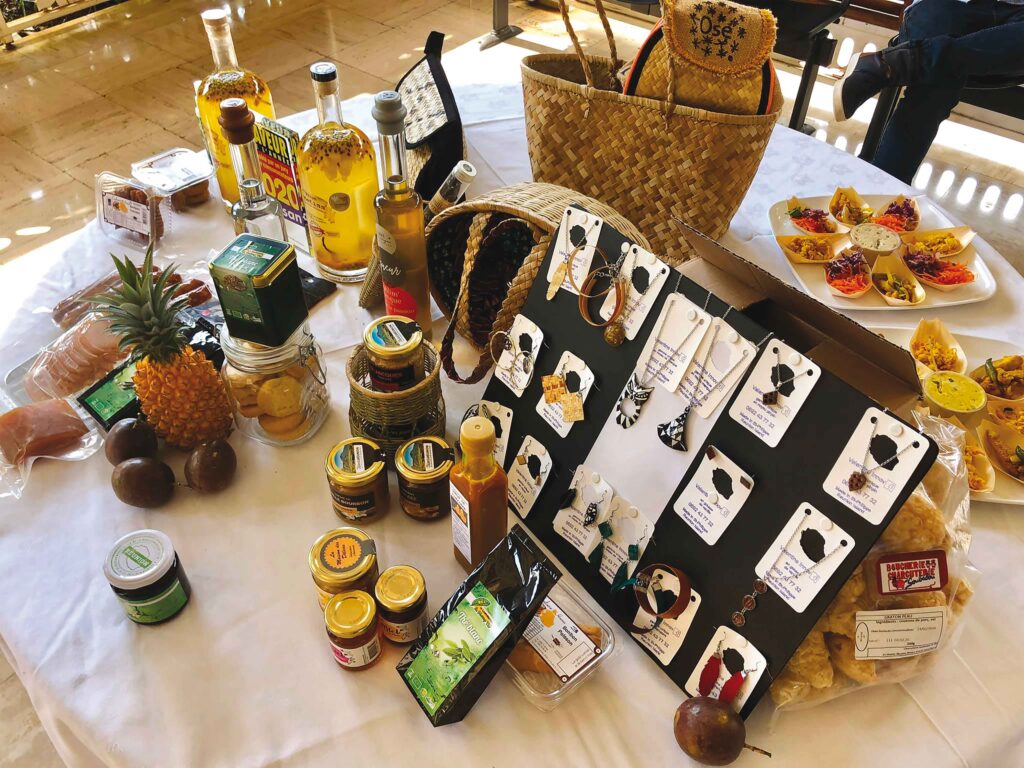Fruit of a signed partnership agreemente on November 16, 2020 between the Chamber of Trades and Crafts of Reunion and the Export Club Meeting, the first collaborative export experience in Reunion sees the light of day this year. A group of artisans in high-end food products will create a joint offer dedicated to sales abroad, in the Indian Ocean, and Europe, or even beyond. Collaborative export aims to bring together companies that wish to export but do not have the means to do so individually.. Supported by the Export Club, this first project could, if he succeeds, open the way to other groups of the same type, or even encourage other forms of collective action to assert externally, especially in Africa, the multiple know-how developed in the Reunion island context. President of the Export Club, Laurent Lemaitre, also general manager from the design office Integrale Engineering, explains the ins and outs of this unique project and the vision of export that underpins it.
Meeting Leader : You defend the idea that, to export, Reunion companies have an interest in joining together : what is this belief based on? ?
Laurent Lemaitre : I'll take an example that I know well from my job. : the sustainable city, la smart city. We have developed phenomenal expertise in this area in Reunion., without us realizing it. In France, we always tend to self-flagellate. The reality, it is that as soon as we leave the territory we realize that Reunion has acquired real expertise in the creation of these smart cities. We already have two eco-cities built, one in Beauséjour and the second currently being built at La Possession, Heart of the City. The third will be the Cambaie ecocity. This expertise, from design to completion, constitutes a global know-how bringing together numerous actors. This extends to waste management, digital, the hospital field, industrial know-how, etc. Too, this is one of our objectives in the coming years : set up a group capable of intervening in a neighborhood for example, in African cities particularly where urban planning needs are significant.
Would it be about responding to calls for tender or taking the initiative to showcase our skills? ?
First, we must be recognized internationally for this specialty of the sustainable city that we possess. Communicate about what we have done. Use all possible networks. Perhaps organize an international event in Reunion. In a second step, we will be able to respond to public or private international calls for tenders. An example, this is the famous city that the Malagasy state wants to build, She is 2. We are right next door. I consider that we must sell our know-how on projects of this type. I cited this example of the sustainable city to show what state of mind we are in.. We must become aware of our export strengths. There are many of them and the collaborative export project carried out by the Export Club, with the Chamber of Trades and Crafts, is another example.
What is this collaborative export project? ?
This involves creating a group which will bring together several small local businesses interested in exporting which will be identified by the Chamber of Trades.. This group will have a contractual form. It will be hosted by the Export Club. It will pool the costs relating to export, fret, communication, advertisement, accompaniement, etc. It will allow companies to work together in a territorial offer approach.
Concretely, seven or eight artisanal companies specializing in a local product will come together to create a common offer. For example péi jam, vanilla, etc. In the meeting, these small producers are competitors and, taken individually, none of them are capable of exporting. Due to lack of financial means, for fear of starting, because they are not organized to export. We'll make them work together. Everyone will identify a flagship product. A specific common brand will be created. The Export Club will take care of the marketing, communication and advertising of this brand and these products. We are going to create a website. And it is then together that these companies will export with our support. This action will develop over two or three years.
What is the role of the Export Club? ?
Its role will be to coordinate all the steps leading to export.. We intervene at all phases. First, evangelization : this term designates the presentation of the project to companies so that they adopt it and agree to work with each other. Group identification : we will not intervene in the first choice of companies, but in the diagnosis of candidates in order to assess their ability to export. The structure of the group : this will be the legal part, le marketing, la communication, etc. Then the offer, with the identification of markets in the Indian Ocean and Europe and marketing. We will be accompanied by a consultant in contact with experts present in these markets.
We will offer a catalog of products. Customers will make their choice if they have preferences. Or alliances will be made with local producers. All solutions are possible. This first step towards export will in any case be beneficial to everyone in terms of experience. And this collaboration will make known the strengths and weaknesses of each. Our role, at the Export Club, will be to find each time the best plan for companies to reach their markets. Because the strategy must be adapted to each type of product or service. It’s a profession of expertise that has never been done before in Reunion Island..
How was this project received in the artisanal sector? ?
When we presented it to the Chamber of Trades, we have seen strong demand, which even surprised us.
We are talking here about exporting abroad only, or also in mainland France ?
Both. In theory, export for us, it is outside mainland France and outside Mayotte. But it is true that the majority of Reunion companies think of the metropolis when they talk about export.. We will assist them in the same way on the mainland market as in foreign markets where difficulties linked to language, to the regulations, will be much larger. My opinion, it's that, in group or not, local companies with a good product will always be able to sell it in mainland France. But the objective, when we talk about know-how and quality products with high added value, it is clearly to go outside of this French-speaking space. In the Indian Ocean zone, and Europe, and why not, to the United States, in Japan, in rich countries that demand this added value.
You talked about a sustainable city, high-end food products : which products and services are best suited to collaborative export ?
We must clearly distinguish what I said about the sustainable city and collaborative export. These are two different approaches. The city would correspond to an offer of complementary services and know-how. At this stage, it's still a thought. L’exportation collaborative, she, is a ready-to-run model : it brings together companies producing the same type of product and which build an offer around this product. This is the first time that this has been done in Reunion.. It should be noted that few groups of this type have yet emerged in mainland France.. Two of them inspire our first project. Olivence, created by five olive oil producers from Provence, worked hard on the visibility of the French offer among English catering professionals. The Club Crus du Beaujolais played together in the USA and Brazil. These two successes encourage us. This means that we are not at all late for the Reunion. The Chamber of Trades is currently studying typologies of artisanal products. Ourselves, at the Export Club, we are in the process of training in this collaborative export. NOW, we are in niche markets. We therefore begin modestly with a small group of agri-food artisans with a position of excellence.. It is essential that this first group be a success if we want to convince other companies to participate in a second group. Companies which will perhaps be a little more structured in more complex professions. This is how an export dynamic will begin.. Reunion Island is characterized by unique know-how, in crafts, in the industry. We are very strong in hospitality. We have skills in waste processing, etc. We realize this diversity of know-how as soon as we leave the territory.
Why can't we export more to Reunion? ?
The observation is always the same : the fear of failing, the costs, the small size of companies which lack structure. It is to compensate for this lack that we are creating this framework in which companies will be able to engage, no longer individually but collectively, with the objective of winning together. We want at the end of this process to finally lift the export taboo that Reunion companies have imposed on themselves for years..
Olivier Soufflet














